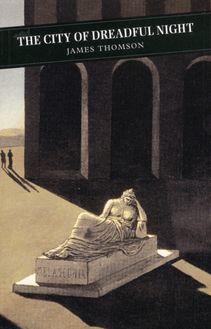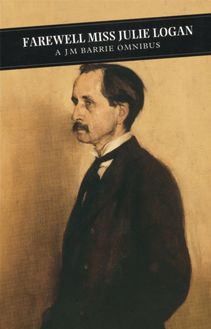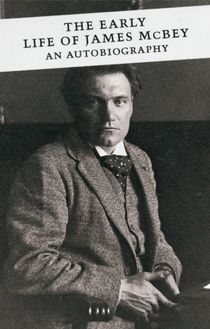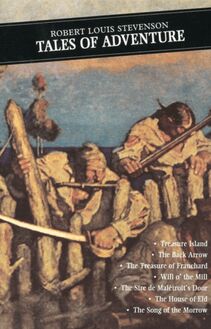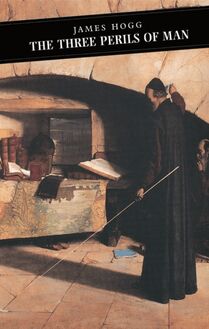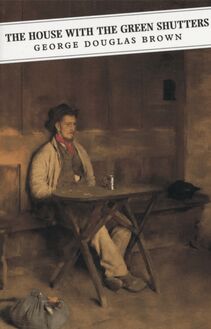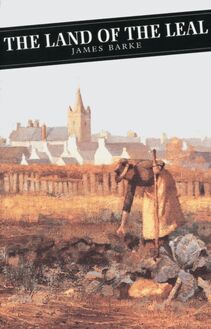Wild Harbour , livre ebook
103
pages
English
Ebooks
2010
Vous pourrez modifier la taille du texte de cet ouvrage
Obtenez un accès à la bibliothèque pour le consulter en ligne En savoir plus
Découvre YouScribe en t'inscrivant gratuitement
Découvre YouScribe en t'inscrivant gratuitement
103
pages
English
Ebooks
2010
Vous pourrez modifier la taille du texte de cet ouvrage
Obtenez un accès à la bibliothèque pour le consulter en ligne En savoir plus
Publié par
Date de parution
01 juillet 2010
Nombre de lectures
0
EAN13
9781847675255
Langue
English
Publié par
Date de parution
01 juillet 2010
Nombre de lectures
0
EAN13
9781847675255
Langue
English
Ian Macpherson
WILD HARBOUR
Introduced by John Burns
Contents
Title Page Introduction 15 May 1944 21 May 28 May 10 June 22 June 5 July 10 July 24 July 16 August 4 September 16 September 1 October 2 October 5 October 9 October 10 October 11 October Night About the Author Copyright
Introduction
You will read very few other books like Ian Macpherson’s Wild Harbour . It is one of those rare books that truly haunts the mind long after it has been put back on the shelf. It is a uniquely personal response to the doubts and uncertainties which many people felt in the 1930s with the darkness of war looming ever nearer, but it is written with such intensity of vision and the narrative builds with such a cumulative urgency that the reader is still keenly aware of its relevance fifty years later.
Published in 1936 it tells of the outbreak of the Second World War, a war which did not actually begin until three years later, although Macpherson has it break out in 1944. This is just part of the book’s fascination; the urge to discover just how far the prophetic novelist ‘got it right’. Looking back with the advantage of hindsight there are clearly areas where he got it wrong, but as Donald Campbell has pointed out this does not really matter: the detail may be wrong, but the general feeling of hopelessness and horror at the spread of war is genuine and is powerfully present throughout. As Campbell points out, ‘there were many places in continental Europe … which must have borne a very close resemblance to the landscape of Wild Harbour in the summer of 1944’. 1
Macpherson’s real focus, though, is not on the war as such, but on the relationship of a man and his wife who decide to have nothing to do with the fighting and who seek refuge in the hills to avoid being drawn into the violence. Hugh and Terry set up home in a cave they had discovered some years earlier in the area around Loch Ericht and Ben Alder, a deserted and desolate area right in the heart of Scotland. The book, written as a journal, describes the way in which Hugh and Terry plan and effect their escape from the destructive horror of the modern world: and in the urgency of its ending shows how that world catches up with them.
Living under the threat of war, ‘a prey to whispers, racked by fears’, Hugh and Terry had often discussed what they would do if it did actually happen and the subject provided material for at least one lengthy debate with their stalker friend Duncan as to whether modern man could survive in the wilds, or whether he has ‘gone soft’. For Duncan there seems little doubt that civilisation has weakened man in body and in spirit to such an extent that survival in the wilderness would no longer be a viable option.
‘If we were forced to live by our own efforts, how’d we thrive? It stands to reason we couldn’t do it. Our senses are blunted. We depend on a multitude of people to make our clothes and food and tools for us. We have noses that can’t smell, ears that are deaf …’
Hugh, on the other hand, sees man’s intelligence as the factor which would enable him to survive and feels sure that if driven to it man would find within himself qualities and potentialities he has long since forgotten. In taking himself and his wife into the wilderness he has to discover these qualities to keep them alive. Intelligence, he quickly realises, is not just the theorising intellect. It is not that kind of intelligence that sustains them so long, but a combination of mental and physical agility and resilience.
Macpherson himself makes no attempt in the book to argue a case for pacifism. He is much more concerned to involve his reader imaginatively in the plight of his two central characters through the device of the journal, and to highlight the futility of war by showing how valuable are the things it destroys. In the face of a war which threatens to engulf the world, Hugh and Terry desperately try to preserve their love for each other, and on that level their story must be emblematic of all those other human bonds and relationships broken apart by wars since the beginning of time. The reader is constantly made aware of their vulnerability. At times they are described clinging to each other like children lost in a threatening world they do not understand. At times they are seen as anxious, frightened figures against a background of disturbing apocalyptic imagery: ‘the future had no light; we lived on the edge of a world gone mad’. As their isolation from the rest of the world deepens and their nerves begin to crack under the strain of it all they begin to argue with each other. Whatever their faults, perhaps because of their faults, the reader is moved to care about these characters because in them is revealed much of our own human frailty and vulnerability.
We respond, too, to the desire to find a secret place where we can be safe from the pressures of the outside world which even in peacetime can sometimes threaten to overwhelm us. On a simple level the game of building a den where we can feel secure and in control is something we have all done as children. For Hugh and Terry it is no game: it is quite simply a matter of life or death.
Initially things go reasonably well for them and there is a great sense of achievement in making their escape and starting to build a home for themselves: domesticating part of the wilderness which sustains them. Gradually their new life begins to seem more real than the life they had left behind, which now seems ‘trivial’, and the otherwise desolate country becomes for them a place of sanctuary; a ‘sanctuary of the mind’ as Hugh puts it at one point. The hard work takes their minds off the fears and anxieties which lie always at the back of their minds.
[Terry] began to laugh like a happy child and dance amongst the peats, waving her bare peat-smeared arms over her head.
We bathed in Loch Coulter; we lay at the mouth of our cave to attend night’s summer shade; we saw the rough hills climb up against the sky and it grew dark enough for stars to shine. There are moments when misery departs that require no voice; we waited in silence until night reached its deepest, though it was only the twilight still.
Despite passages like this which celebrate a new-found awareness of the beauty and mystery of life, the guilt and anxiety caused by feeling they are safe at the expense of others lies just below the surface. It comes out in the care with which they try to keep their cave camouflaged against prying eyes by making sure that the stones used to block one entrance have their weathered side outward. It comes out, too, in the way Hugh stalks different areas for game so as not to frighten away the wildlife from their immediate vicinity. It is also there in the way Hugh and Terry constantly monitor the weather and the changing seasons. As the journal goes on it becomes clear that the approach of winter is a powerful metaphor for the end; the coldness and darkness of death.
Perhaps most tellingly their anxieties have a destructive effect on their feelings for each other, so that the relationship they are so desperate to protect becomes strained almost to breaking point. Hugh in particular seems unable to live up to his early idealism, and often treats Terry with a ‘defensive roughness’ that he cannot control, though it is obviously hurtful to her. In a sense this was bound to happen for all along Hugh has had doubts about their position. Time and again Terry has had to coax him out of depression or out of rages about the hopelessness of it all. All along Terry has had a simple but unshakeable faith that they are doing the right thing.
Finally anxiety forces itself upon them in the shape of desperate bands of armed men who break into the closed world around their cave. From this point on their isolation is ended and the anxiety is no longer just in their minds: it is stalking them just as surely as Hugh had earlier stalked the deer. This time there can be no escape: they must face it. Again it is Terry who does so most fully, even though she knows it is the beginning of the end for them. As they are drawn in to the fighting they respond differently. Hugh finds a ‘fierce exultation’ in it, while Terry finds comfort in helping one of the wounded men even though he dies.
Having lived for so long on the edges of the human world this renewed involvement releases them both from the inner anxieties that had begun to destroy them. They decide to leave the cave and go back to the world of men, whatever might await them, a decision which liberates them from doubt and fear because once more they feel in control of their own lives. This does not negate their experience because it is only through living as they have done that they have been able to break through to this new sense of being, the unselfish acceptance of a responsibility to others, an acknowledgement that however misguided the rest of humanity might be they are still a part of it.
[The cave] sheltered us and brought us to know ourselves and chose the only way of peace …. I am grateful for that harsh instruction because it taught us wisdom and gave us happiness beyond fear and thought of our own safety.
With this sense of renewed involvement and hope the novel could have ended, but Macpherson’s austere vision takes the story further, and the book ends with the deaths of Terry and Hugh. The ending is harrowing but inevitable. They had known from the start that they would probably not survive: ‘we’ll never escape, we’ll starve and rot in this den, this hole in the rock’. The tragedy of it is that death is the price they must pay for their new self-awareness. As Terry dies first it is particularly harrowing for Hugh. Losing Terry tests him to the limits of his being because she has comforted and supported him from the start. Terry’s faith was always stronger tha
